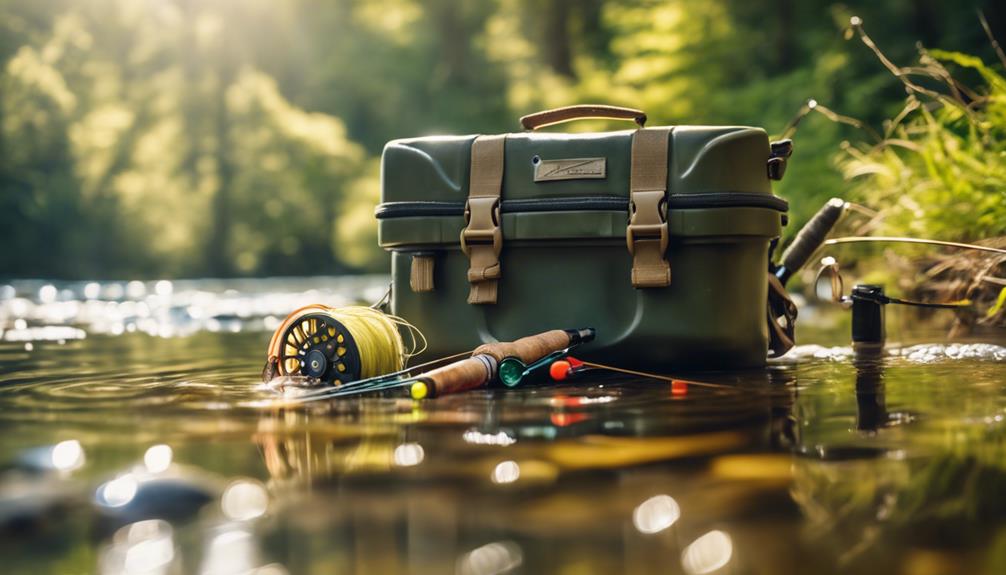Fishing is a cherished pastime for many, offering relaxation, adventure, and a connection to nature. However, before you can cast your line, it’s essential to understand what you need for a fishing license. This guide will provide you with all the information you need to navigate the process of obtaining a fishing license, ensuring that you comply with local regulations and enjoy your fishing experience to the fullest.
Understanding the Importance of a Fishing License
A fishing license is not just a piece of paper; it’s a legal requirement in most states and countries. Obtaining a fishing license helps regulate fishing activities, ensuring sustainable fish populations and protecting aquatic ecosystems. By securing your license, you contribute to conservation efforts and help maintain the natural balance of waterways. Additionally, fishing licenses often fund state wildlife agencies, which work to preserve habitats and enhance outdoor recreational opportunities for everyone.
Types of Fishing Licenses Available
When considering what you need for a fishing license, it’s crucial to know that there are various types available, depending on your age, residency status, and the type of fishing you plan to do. Common types include:
– Standard Fishing License: This is the most common license for adults and allows for general fishing activities.
– Youth Fishing License: Many states offer discounted or free licenses for minors, encouraging young anglers to participate in the sport.
– Senior Fishing License: Some regions provide special licenses for senior citizens at reduced rates.
– Saltwater vs. Freshwater Licenses: Depending on where you plan to fish, you may need a saltwater license for ocean fishing or a freshwater license for lakes and rivers.
– Specialty Licenses: Certain states offer additional licenses for specific types of fishing, like trout fishing or ice fishing.
Understanding these options is essential in determining what you need for a fishing license that suits your fishing plans.
Requirements for Obtaining a Fishing License
To obtain a fishing license, you generally need to meet specific requirements, which can vary by state. Typically, the following items are necessary:
1. Identification: A government-issued ID, such as a driver’s license or passport, is usually required to verify your identity and residency status.
2. Age Verification: You may need to provide proof of age, especially for youth or senior licenses.
3. Payment: Most states charge a fee for fishing licenses, which can vary based on type and duration (daily, annual, etc.). Payment methods usually include credit cards, cash, or checks.
4. Completion of a Fishing Course: Some states require anglers to complete a fishing education course, especially for those under a certain age.
Before applying, check your local regulations to ensure you have everything you need for a fishing license.
Where to Apply for a Fishing License
Once you have all the necessary information and documents, the next step is to determine where to apply for your fishing license. There are several convenient options available:
– Online Application: Many states offer online portals where you can apply for and purchase your fishing license from the comfort of your home.
– Local Wildlife Agency: You can visit your state’s wildlife agency office or department of natural resources to apply in person. This option also allows you to ask any questions you may have.
– Authorized Retailers: Certain sporting goods stores, bait shops, and other authorized retailers can issue fishing licenses on-site. This option is particularly convenient if you prefer to buy your fishing gear and license in one trip.
By choosing the method that best suits you, you can streamline the process of obtaining what you need for a fishing license.
Understanding Fishing Regulations and Restrictions
Once you have your fishing license, it’s essential to familiarize yourself with local fishing regulations and restrictions. These rules are designed to promote sustainable fishing practices and protect fish populations. Key regulations may include:
– Fishing Seasons: Many states have specific seasons when certain fish species can be caught, so always check the regulations for the waters you plan to fish.
– Bag Limits: There are usually limits on the number and size of fish you can catch in a single day. Adhering to these limits is crucial for conservation efforts.
– Restricted Areas: Some bodies of water may have designated areas where fishing is prohibited to protect fish spawning grounds or sensitive ecosystems.
Understanding these regulations is vital for responsible fishing and ensuring that you remain compliant with your fishing license.
Tips for First-Time Anglers
For those new to fishing, obtaining a fishing license is just the first step. Here are some tips to enhance your fishing experience:
– Research Local Fishing Spots: Look for local lakes, rivers, or coastal areas that are known for good fishing. Online forums and local fishing guides can be great resources.
– Invest in Proper Gear: Depending on the type of fishing you plan to do, ensure you have the right equipment. This may include rods, reels, bait, and tackle.
– Learn Basic Techniques: Familiarize yourself with various fishing techniques, such as casting, trolling, or fly fishing. YouTube and fishing blogs are excellent resources for tutorials.
– Join a Fishing Community: Consider joining a local fishing club or online community. Engaging with other anglers can provide valuable insights, tips, and support.
By following these tips, you can make the most of your fishing adventures while complying with what you need for a fishing license.
Conclusion: Enjoying Responsible Fishing
In conclusion, understanding what you need for a fishing license is crucial for anyone looking to enjoy this rewarding activity. By securing your license and adhering to local regulations, you contribute to the conservation of aquatic ecosystems and ensure that future generations can enjoy fishing as well. Whether you’re a seasoned angler or a first-time fisher, having the proper knowledge and preparation will enhance your fishing experience. So, gather your gear, apply for your license, and get ready to make lasting memories on the water!
